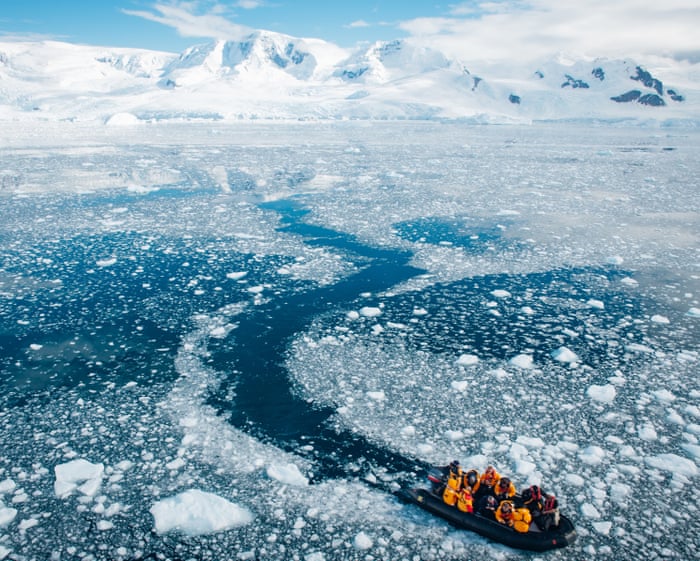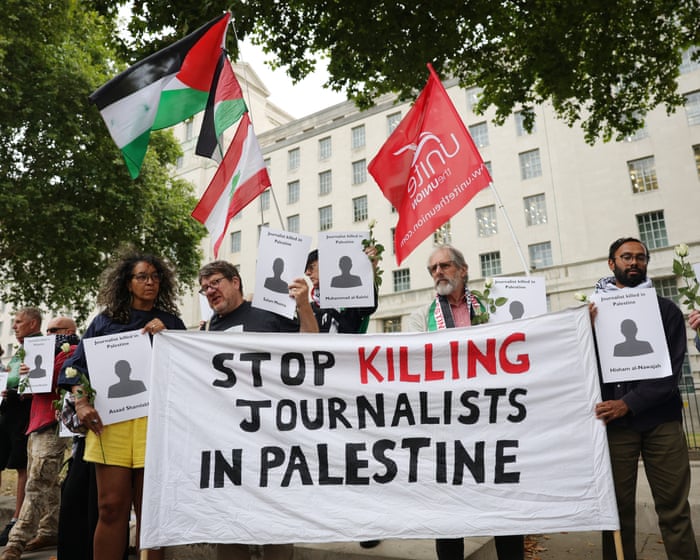A diplomatic dispute has broken out over the “illegal” detention of a Ukrainian scientist accused by the Kremlin of harming Russia’s krill fishing industry in Antarctica. Leonid Pshenichnov, a 70-year-old biologist and Antarctic expert, has a long history of scientific research and conservation work, including advocating for marine protected areas in the region.
He was arrested in Russian-occupied Crimea while preparing to travel to Australia for a conference on protecting Antarctic marine life. Russian authorities have since charged him with high treason. The Guardian has reviewed a document, reportedly provided by Russian officials to Pshenichnov’s lawyers, detailing the accusations.
A colleague noted that Pshenichnov “had the misfortune of living in Kerch, Crimea, when it was captured by Russian troops.”
The document refers to the scientist as a “citizen of the Russian Federation” who allegedly “defected to the enemy’s side” by assisting Ukraine’s delegation at the Antarctic conference organized by the Commission for the Conservation of Antarctic Marine Living Resources (CCAMLR) in Hobart, Tasmania. It claims Pshenichnov used his research to damage Russia’s krill fishing by supporting Ukrainian proposals to limit krill harvesting, which would harm Russia’s economic interests.
CCAMLR, an international commission with 27 members founded in 1982, is set to discuss establishing a marine protected area around the Antarctic Peninsula to safeguard krill, a key species in the Southern Ocean’s food chain. For decades, China and Russia have blocked the creation of such protected areas, with critics accusing them of collaborating to ease fishing restrictions. This year, krill catches in Antarctic waters reached levels scientists consider unsustainable for the first time.
Australia has expressed “grave concern” over the scientist’s detention, and the UK has urged Moscow to release “all arbitrarily detained civilians.” Fellow researchers described Pshenichnov as an “outstanding” scientist and a “very kind” person, calling his detention “unspeakable” and expressing deep worry due to his health issues.
On the conference’s opening day, Ukraine’s ambassador to Australia, Vasyl Myroshnychenko, told attendees he was “profoundly shocked” by the scientist’s “illegal incarceration” and called on other CCAMLR members—including Australia, the U.S., Japan, Russia, and China—to condemn Russia’s actions. He questioned whether the CCAMLR community could stand by while a biologist dedicated to Antarctic conservation faces persecution and imprisonment.
Pshenichnov has been involved with CCAMLR since 1983 and has participated as a Ukrainian scientist since 1994. Ambassador Myroshnychenko stated, “He’s a scientist, not an official, not a politician. These are trumped-up charges, his detention is groundless.” He added that the treason charges are directly linked to Pshenichnov’s scientific work at CCAMLR. In 2023, Russian President Vladimir Putin increased the maximum penalty for treason from 20 years to life imprisonment. Pshenichnov was reportedly forced to obtain a Russian passport while staying with family.Ambassador Myroshnychenko stated that his colleague is being held in temporarily occupied Crimea and has been unjustly accused of “threatening the security of the Russian Federation.” He added that his deputy is gathering support from various countries to send a letter to Moscow demanding the scientist’s release.
Pshenichnov resides in Kerch, Crimea, with his wife and one of his two sons. A fellow scientist described his detention as “unspeakable.”
Dr. Evgeny A. Pakhomov, a biological oceanographer at the University of British Columbia in Canada, has co-authored two scientific papers with Pshenichnov and known him for three decades. He shared that Pshenichnov is a very kind person, suffers from kneecap issues requiring regular injections, and that everyone is deeply concerned for his well-being.
Oceanographer Valerii Paramonov praised Pshenichnov as an exceptional scientist whose contributions to CCAMLR are invaluable. He noted that Pshenichnov’s only misfortune was living in Kerch when it was seized by Russian forces.
Dan Crockett, executive director of the Blue Marine Foundation, asserted that Pshenichnov was imprisoned solely for providing scientific evidence on the effects of krill fishing on the Antarctic ecosystem. He urged CCAMLR member countries to pressure Russia for his release and to honor his research by limiting krill trawling.
The Russian embassy was approached for a comment but has not yet responded.
Frequently Asked Questions
Of course Here is a list of FAQs about the reported detention of a Ukrainian biologist by Russia presented in a clear and natural tone
Basic Understanding The Event
1 What is this story about
Russia has detained a Ukrainian biologist reportedly for his public support of placing stricter limits on commercial krill harvesting in the Antarctic
2 Who is the biologist involved
The individual is a Ukrainian scientist whose expertise is in marine biology and the Antarctic ecosystem Specific details about his identity are often limited in initial reports
3 Why would someone be detained over krill
This is the core of the controversy On the surface it seems to be about environmental policy However many analysts believe the detention is politically motivated using a scientific dispute as a pretext especially given the ongoing conflict between Russia and Ukraine
4 Where did this detention happen
Reports indicate he was detained in Russia but the exact location can vary depending on the news source
About Krill The Antarctic
5 What is Antarctic krill
Antarctic krill are small shrimplike crustaceans that form massive swarms in the Southern Ocean They are a fundamental part of the Antarctic food web
6 Why is krill so important
Krill are a keystone species This means whales penguins seals and fish rely on them as a primary food source If krill populations collapse the entire Antarctic ecosystem is at risk
7 What is krill harvesting
Its the commercial fishing of krill primarily for use in omega3 dietary supplements aquaculture feed and other products
8 Why do people want to limit krill harvesting
Scientists are concerned that overfishing krill could devastate the predators that depend on them and disrupt the delicate balance of the Antarctic ecosystem especially in a time of climate change
Geopolitics Deeper Issues
9 What does Russia have to do with Antarctic krill
Russia has a significant commercial fishing fleet that actively harvests krill in the Antarctic Limits on harvesting could impact its economic interests in the region
10 Who makes the rules for fishing in the Antarctic
The Commission for the Conservation of Antarctic Marine Living Resources is the international body responsible for managing fishing including krill Its decisions



